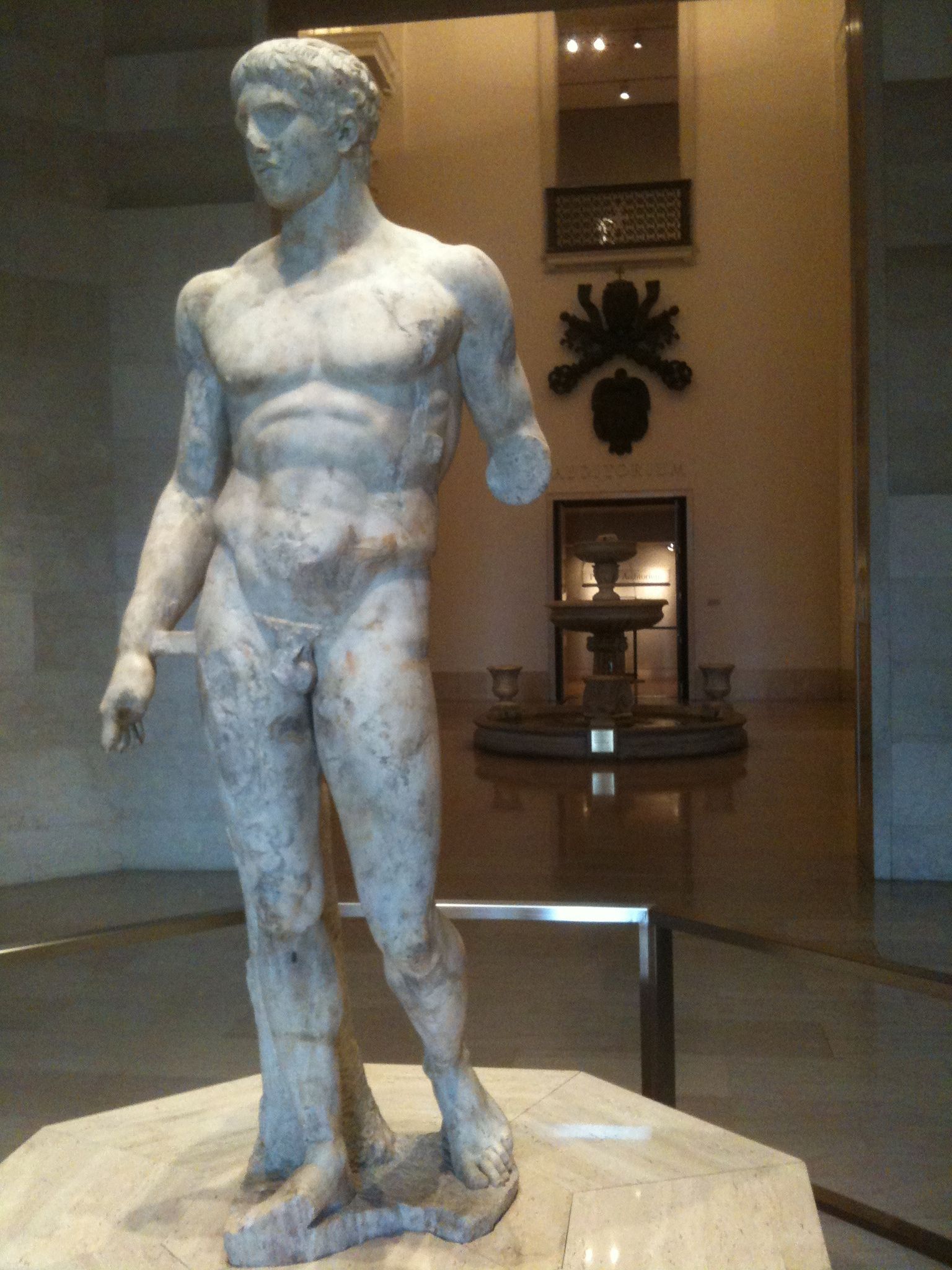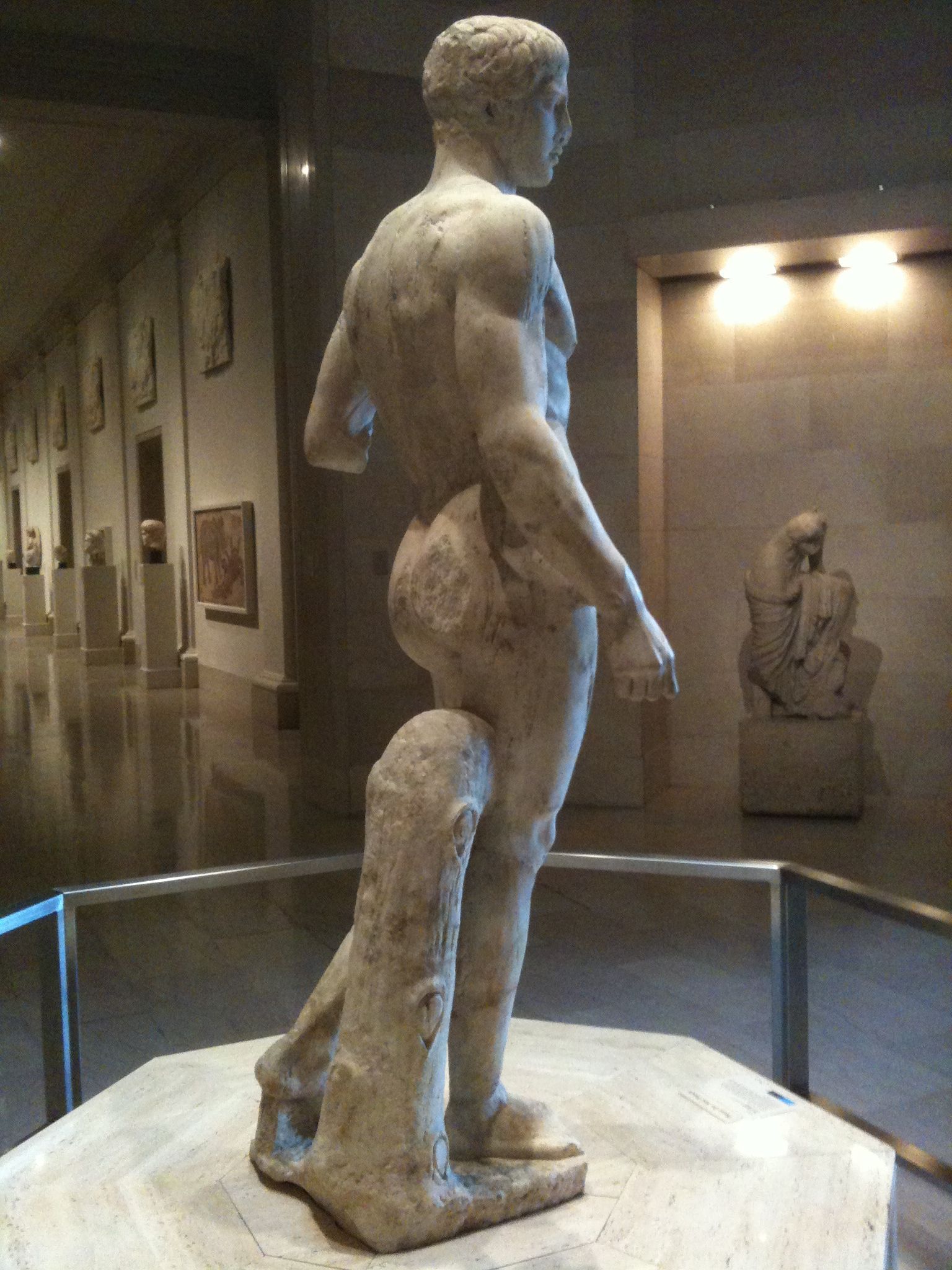From time to time it is good to visit a well provided museum. This morning I am at the Minneapolis Institute of Art.
In the atrium of the old building is one of the best pieces in the collection.
This is a 2nd c. BC Roman copy, one of four extant, of a famous 5th c. bronze by Polykleitos. It is a spear-bearer or Doryphoros. The original was perfectly designed to produce a harmony from an ideal or “canon” on the human form. The measurements to the different parts of the form took their origin from the end if a now missing little finger.
This is the best copy, the others being in the Uffizi, Vatican, and Naples.
In the background is a fine stemma in wood of the Farnese Pope, Paul III.





































Hope you get a chance to see William Bouguereau’s “Temptation.” I think Bouguereau’s work represents the zenith of Western representational painting, at least in terms of craftsmanship, finish, and the rendering of human flesh.
When I first saw the Apollo Belvedere in Rome, I burst in tears, as the piece was so beautiful. Adam before the Fall…http://upload.wikimedia.org/wikipedia/commons/thumb/e/e6/Belvedere_Apollo_Pio-Clementino_Inv1015.jpg/250px-Belvedere_Apollo_Pio-Clementino_Inv1015.jpg
This going to be on my Art History test Wednesday! Thanks for the review.
Concelebration plans for All Saints/All Souls? Would love to see you at St. Agnes again. Be sure to stop by the Happy Gnome for some lambic on tap for a limited time. Convert the heathens in Halloween garb? Might be a place to stay away from tonight…
Saw the beautiful sculpures at the Uffizi in Florence earlier this month. Incredible.
A nice example of the process of Hellenization: poetic Greece inspiring bureaucratic Rome. Thank goodness, because the Church, too, has benefited from this melding of ancient cultures. Such terms as Supreme Pontiff, and even Church structure, are clearly Roman, but her vast appreciation of beauty is clearly Greek.
I remember studying this one in detail in my Classics classes back in the good old days.
Perhaps he lost his finger as a punishment for his psilological proclivities.
William: Excellent! You perhaps remember my reference to the psilological doryphore!